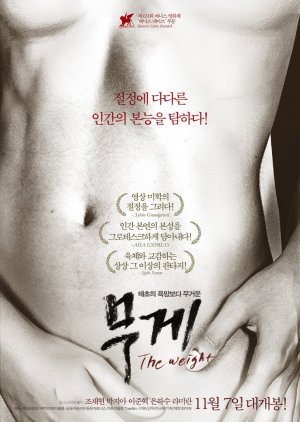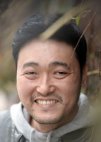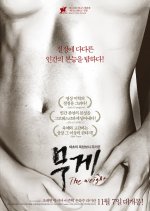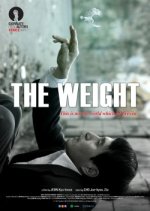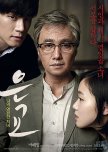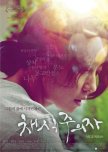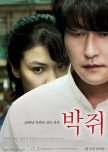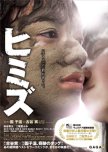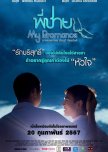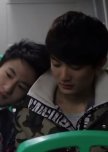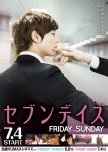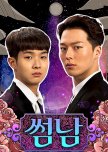Jung is the mortician at the morgue who has to heavily rely on medicine for his severe tuberculosis and arthritis. Despite his illness, cleansing and dressing the dead is a noble and even beautiful work to him. Jung is the last living person who silently takes care of the dead. So for him, his life at the morgue is both a reality and a fantasy while the corpses are his models and friends for his paintings, his sole living pleasure. Born with a hunchback and left at an orphanage, Jung was adopted by a woman who hid him away in the attic only to use him as a child slave for her dress shop. The woman's own child Dong-bae is younger than Jung; she has always wanted to become a woman, loathing her own male body. While Jung feels affection and sympathy for his younger stepsister, he feels burdened by Dong-bae's struggles. Under the weight of life and death carried by the dead bodies that he faces each day coupled with his love-hate relationship with Dong-bae, Jung endures the pain and thirst that he feels like a camel crossing a desolate desert in silence. Then he quietly prepares his biggest, his last gift for his sister. Edit Translation
- English
- magyar / magyar nyelv
- dansk
- Norsk
- Native Title: 무게
- Also Known As: Mooge
- Screenwriter & Director: Jeon Kyu Hwan
- Genres: Life, Drama
Cast & Credits
- Jo Jae Hyun Main Role
- Ra Mi Ran Support Role
- Park Ji Ah[Peer]Support Role
- Lee Joon Hyuk Support Role
- Yoo Seung HyunYeo Bae WooSupport Role
- Park Young Bok[Drug man]Support Role
Reviews

The gay component is small, but this time it doesn't matter at all. There will certainly be those who will not understand the film and will condemn only the "skin" - the actions of physically and mentally damaged beings, with a different sexual orientation or preferences. It is only under this skin that the true tragedy of the creatures who "STILL LIVE" is hidden in the lowest level of human society, and which was so perfectly portrayed by the Korean filmmakers with the help of actors and other film tools (in South Korea, meat is wrapped in newspaper to absorb those toxic substances from the printing ink? It felt like we were in North Korea...). I deduct a point for the processing because the hump of "Jung" was a little different every time.
I'll borrow one sentence from Ketri from ČSFD, which seems to me to be absolutely descriptive and perfect for the film: "An incredibly beautiful film that will leave you with guaranteed depression for a very long time."
Hrůzný film o "LIDSKÝCH NEDOKONALOSTECH PŘÍRODY". Strašný, depresivní, naturalistický, a přitom pomalu tekoucí, jako do oceánu ústící rozlehlá delta velké řeky. Nedivím se, co píše v komentu překladatel Matt Bianco, kterému dodatečně děkuji nejen za titulky, ale i za to, že se vůbec na pochopení tak těžkého filmu ujal. Obsah si přečtete v Podrobnostech k filmu a doporučuji se též podívat na dvacítku Plot Keywords na IMDb.
Gay složky je málo, ale tentokrát to vůbec nevadí. Určitě se najdou tací, co snímek nepochopí a budou odsuzovat jen tu "slupku" - jednání bytostí poškozených tělesně, duševně, s jinou sexuální orientací či preferencemi. Teprve pod touto slupkou se skrývá ta pravá tragédie tvorů, kteří "TAKÉ JEŠTĚ ŽIJÍ", a to v nejspodnějším patře lidské společnosti a kterou tak dokonale vykreslili korejští tvůrci pomocí herců a dalších filmových nástrojů (v Jižní Koreji se balí maso do novin, aby nasálo ty toxické látky z tiskařské barvy? Zdálo se mi, jako bychom byli v Severní Koreji ...). Za zpracování ubírám ještě bodík za to, že hrb "Junga" byl pokaždé trošku jiný.
Vypůjčím si jednu větu od Ketri z ČSFD, která se mi zdá ke snímku naprosto vystihující a dokonalá: "Neuvěřitelně krásný film, z kterého budete mít zaručenou depresi na hodně dlouhou dobu."

